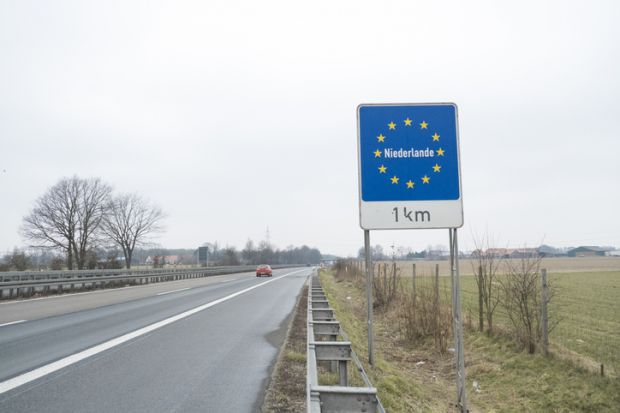New alliances of European universities could soon be allowed to take on partners far outside the European Union, potentially including countries with dubious records on academic freedom, such as Russia and Belarus.
Speaking at Times Higher Education’s Europe Universities Summit, Themis Christophidou, director general of education, youth, sport and culture at the European Commission, said that Brussels was “considering widening the geographical scope, allowing associated partners from a wider set of countries, such as those involved in the Bologna process.”
The Bologna process, a multi-decade project of degree standardisation and reform, extends far to the east of the EU and includes Russia, Belarus and central Asian countries such as Kazakhstan and Azerbaijan.
Brussels has poured hundreds of millions of euros into 41 pilot European universities, networks of existing institutions backed by €7 million (£6 million) over the course of a three-year pilot.
They are attempting to create “European inter-university campuses”, allow a seamless circulation of students and academics, and set up joint programmes. So far, they have been restricted to EU member states, plus the UK, Iceland, Norway, Serbia and Turkey.
But there have been complaints that the funding available falls well short of the project’s ambitions.
Ms Christophidou said that “we have heard the sector’s calls for more and more long-term financing, and we understand that it is crucial for higher education institutions to have a long-term perspective”.
She added that the commission would also keep an “inclusive approach” to the initiative, and was looking at allowing universities to “join existing alliances or to form new ones”.
Brussels is also “exploring” the “development of a European degree” and a “legal statute for European universities, in full respect of institutional autonomy and member states’ competences”, she said.
Earlier this month, ministers from across the EU agreed a new set of conclusions about the future of the project, including a call for more “sustainable funding instruments”, using regional and national money as well as EU funds.
They also want to look into the “need and feasibility” of “joint European degrees within the alliances of ‘European universities’”.
But some of those trying to build the new European universities still want more reassurance about the longevity of the project.
Ludovic Thilly, coordinator of the EC2U European University Alliance, told a later session during the THE conference that “staff are exhausted” waiting for reassurances that “there will be long-term support”.
Some member states such as France and Germany had been co-funding the initiative from national budgets, whereas “some do not bring a single euro” to the table, he complained.
As for expanding existing alliances, Robin Mason, pro vice-chancellor (international) at the University of Birmingham, warned that it was “mistaken” to believe it would be “straightforward” to allow a few extra universities to join.
There was also “great uncertainty over whether UK universities will be able to continue as full partners” after the current pilot phase because of Brexit, he added.
Register to continue
Why register?
- Registration is free and only takes a moment
- Once registered, you can read 3 articles a month
- Sign up for our newsletter
Subscribe
Or subscribe for unlimited access to:
- Unlimited access to news, views, insights & reviews
- Digital editions
- Digital access to THE’s university and college rankings analysis
Already registered or a current subscriber? Login








